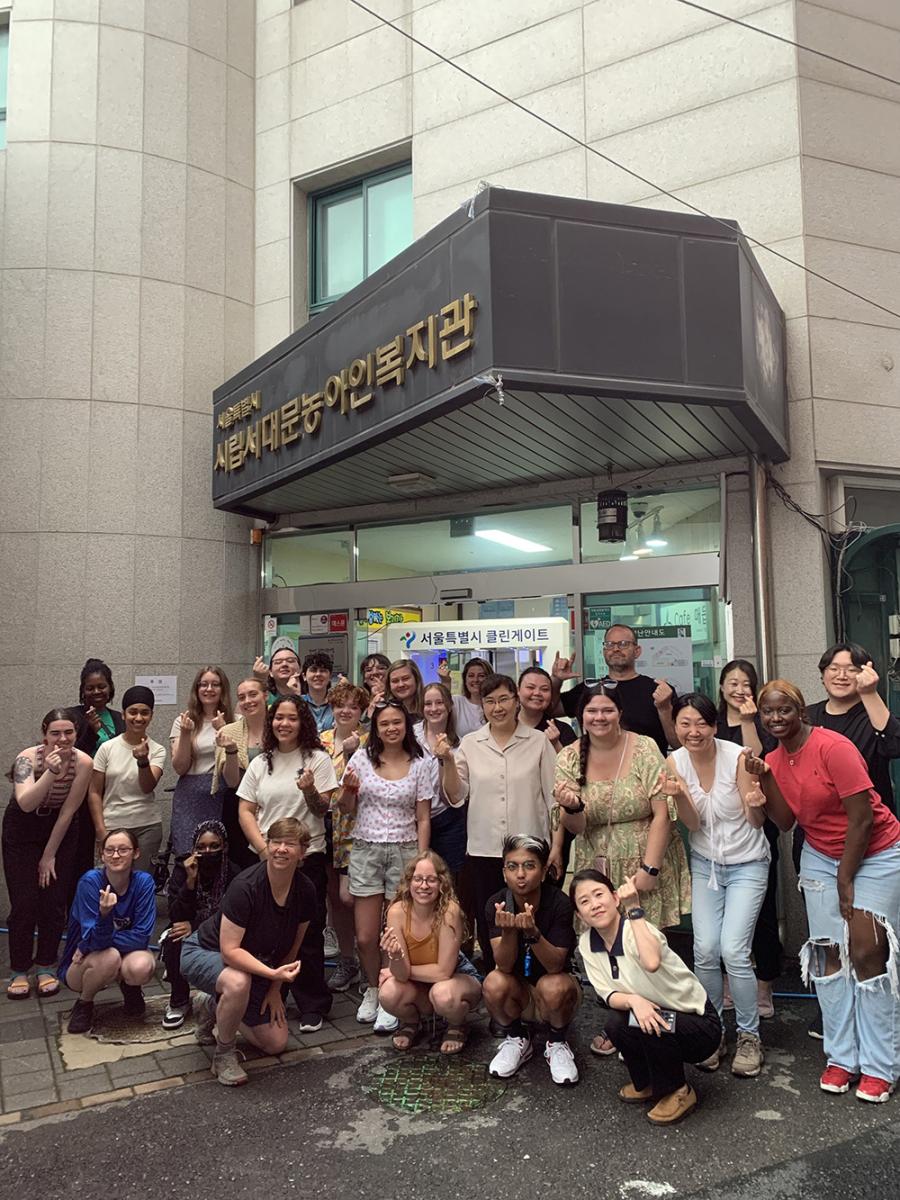As a Deaf individual deciding to study abroad for the first time, I learned a lot about accessibility from country to country. It was surprising and nice to see how smoothly my trip went, and I would love to be able to go again.
Once I set foot into the metro in South Korea, I was surprised to see a sign language interpreter on screen. It was something I had never seen before or had experienced, and I felt excited and seen. It was as if I was not invisible in the country. Unfortunately, I did not get a chance to take a photo, as it would’ve been rude to everyone on the metro. A few days later, our group met other Deaf students like us and visited a local school for the Deaf. It was very different but also similar to NTID, with different kinds of classes for different age groups.
Presentation at one of the Deaf schools in South Korea.
 Here are three tips when traveling abroad as a Deaf student:
Here are three tips when traveling abroad as a Deaf student:
1) Always let people know that you are Deaf/hard of hearing for clearer communication between each other. Although sometimes they might discriminate against you or refuse services, it’s still helpful to let them know. I let one of the workers I was ordering food from know that I was Deaf, and they wrote down on their notes app what they wanted to ask/tell me, and it went smoothly after that.
2) Sometimes, learning your host country’s sign language can come in handy if they do not understand ASL but understand it is their own country’s sign language. You don’t have to learn the entire language entirely, but just some basics so they’ll be able to understand you. It’s not a requirement, but a helpful thing I learned when I was studying abroad. Using KSL(Korean Sign Language) helped me with communicating with other Deaf students who could not understand ASL. Translators, of course, come in handy as well.
3) If it’s your first time studying abroad or flying internationally, letting flight attendants know can help your flight go easier. Sometimes, there will be a flight attendant who knows sign language, or sometimes not, but they’ll realize that you cannot hear them and accommodate you. Even if you let the airline know that you’re Deaf and need accessibility ahead of time when purchasing the ticket, it’s always a good idea to let them know again when boarding your flight.
That concludes my three tips for studying abroad as a Deaf student. I’m happy to be able to let others know what they could do when they decide to study abroad. Don’t let communication barriers or your disability stop you from having an enjoyable experience abroad!
Keyazsha Ashford is a Design & Imaging Tech major at NTID, who studied on an NTID Faculty-Led program to Seoul, South Korea in the summer of 2023.
Source link
All Materials on this website/blog are only for Learning & Educational purposes. It is strictly recommended to buy the products from the original owner/publisher of these products. Our intention is not to infringe any copyright policy. If you are the copyright holder of any of the content uploaded on this site and don’t want it to be here. Instead of taking any other action, please contact us. Your complaint would be honored, and the highlighted content will be removed instantly.
